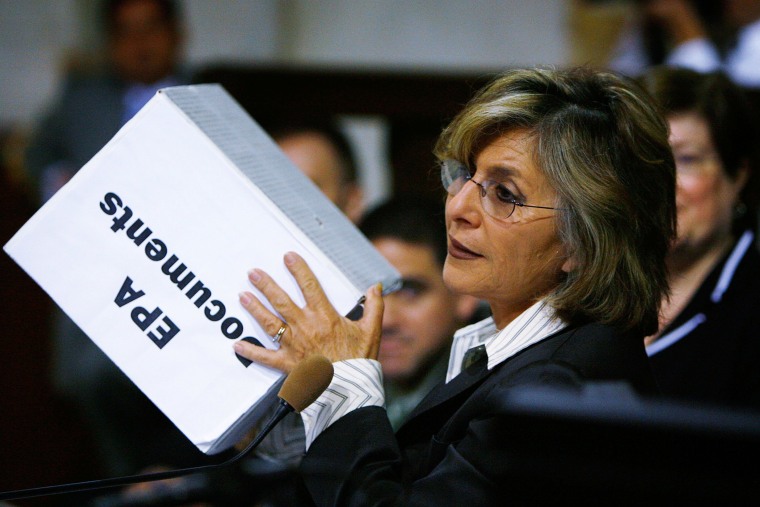EPA officials told the agency's administrator that California had "compelling and extraordinary conditions" to justify a federal waiver allowing the state to reduce greenhouse gas emissions from vehicles, according to excerpts of documents released Wednesday.
Yet when Administrator Stephen Johnson denied the state's request for a waiver in December, he said the California standards were not needed to meet "compelling and extraordinary conditions," one of the criteria in the federal law.
The excerpts from Environmental Protection Agency documents were released by Sen. Barbara Boxer, D-Calif., whose environmental committee is investigating Johnson's decision and has called him to testify at a hearing Thursday.
California needs the federal waiver under the Clean Air Act to implement its first-in-the-nation tailpipe rules, which would force automakers to cut greenhouse gas emissions by 30 percent in new cars and light trucks by 2016.
At least 16 other states also want to implement the regulations, but they too were blocked when EPA denied California a waiver. Earlier this month, California and other states sued EPA over the decision.
The staff report was given to Johnson in a PowerPoint presentation dated late October. The EPA has refused to release unredacted versions of that presentation or other documents in response to congressional demands, citing executive branch confidentiality.
But Boxer's aides were allowed to review and transcribe several versions of the 46-page PowerPoint presentation on Tuesday, spending 5 1/2 hours doing so under supervision of EPA staff, Boxer said. EPA officials asked that the information be kept private, but Boxer's staff told EPA they wouldn't agree to that condition, and they released the excerpts to reporters Wednesday.
'The decision was his alone'
EPA spokesman Jonathan Shradar said Boxer’s decision to release the excerpts was “troubling,” though he didn’t dispute their accuracy.
"All of the information that will be available and has been will prove that (Johnson has) been given a wide range of options and the ramifications, but under the Clean Air Act the decison was his alone and he stands by his decision," Shradar said.
The Associated Press and other news outlets previously had reported on the existence of the PowerPoint presentation prepared for Johnson, and that it included the prediction "EPA likely to lose suit" if sued for denying the waiver.
There were new details in the excerpts Boxer released Wednesday, including that EPA officials were directed to soften the prediction "EPA likely to lose suit." A later version read: "EPA's litigation risks are significantly higher than if a waiver is granted."
Also in the PowerPoint was a slide labeled "If We Grant ..." that included the predictions "likely suit by manufacturers" and "EPA is almost certain to win such a suit."
A slide reading "Compelling and Extraordinary Circumstances" said: "California continues to have compelling and extraordinary conditions in general (geography, climatic, human and motor vehicle populations — many such conditions are vulnerable to climate change conditions) as confirmed by several recent EPA decisions ... ."
Automakers have opposed giving California the waiver, arguing it would create a "patchwork" of regulations around the country, an argument EPA also adopted. Johnson said that Congress' new fuel-efficiency law, adopted in December, was a better way to go.
Environmentalists contend the California law is stronger and takes effect faster than the new federal rules.
